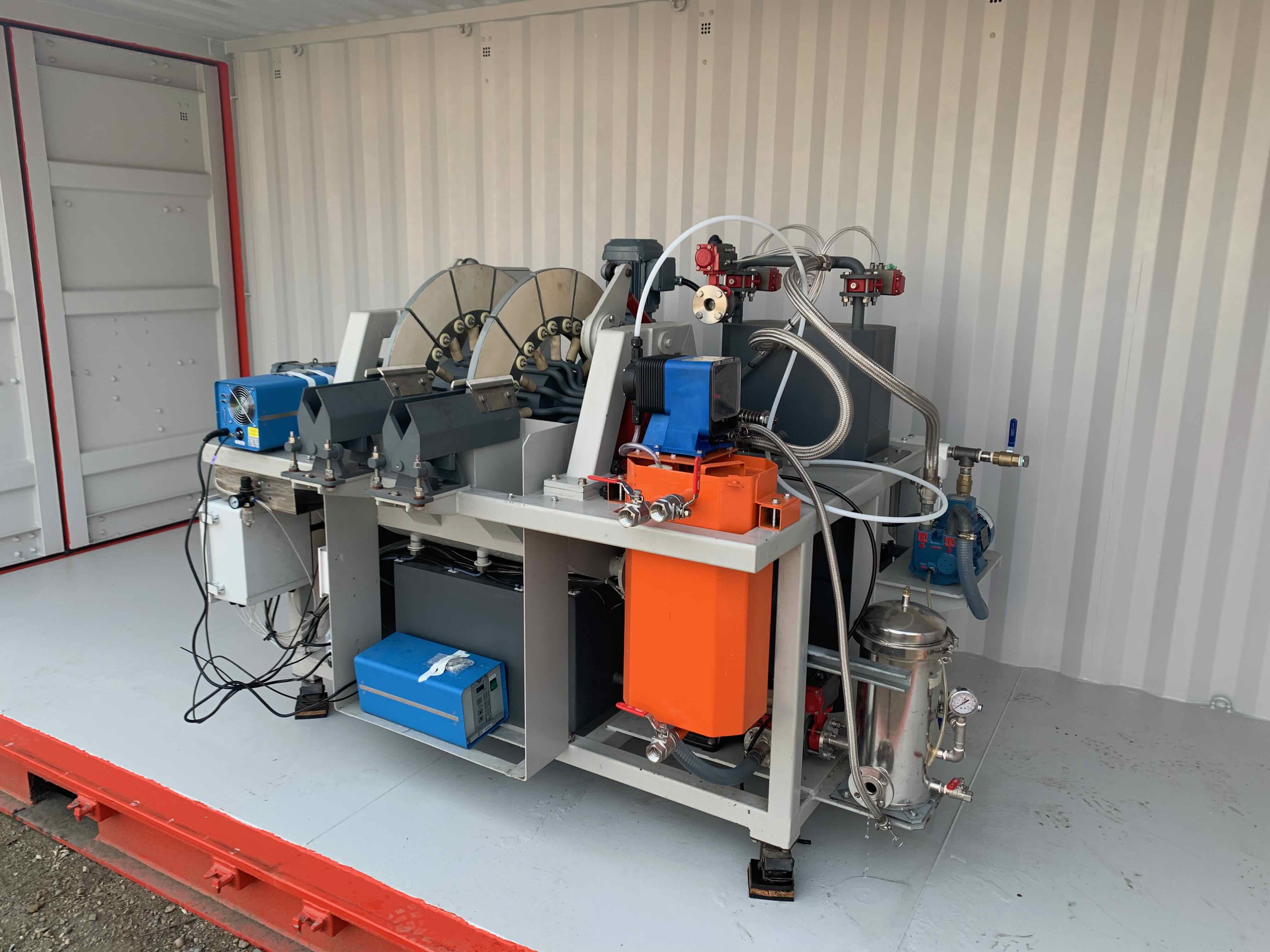Coming from a long history of design, supply, and optimization efforts, we place significant emphasis on understanding how a multitude of factors influence your individual project’s requirements.
To ensure maximum integration of testwork and engineering, we own and operate our own 3,500 sq. ft. facility, in Kamloops, BC, which gives us the competency to validate concepts through fundamental science. This integration provides a robust knowledge base for training and development, and experience with a wide range of minerals and their characteristics.
Competitive Advantage
Characterization Testing
Efficient materials analysis is crucial. We use various methods to examine the physical, chemical, and mineralogical properties of your ore. By comparing each sample's unique features with our database and global standards, we accelerate testing and avoid common pitfalls.
Settling Testing, Flocculant Selection, Thickener Sizing
We conduct extensive lab tests for thickening sizing and design, including flocculation assessments, static and dynamic testing for tailings thickener analysis, and evaluation of rheological properties. We also perform secondary in-line flocculation testing for challenging slurries.
Filtration Testing
We're adept at bench and pilot-scale filtration testing for cloth and ceramic membranes on disc and belt filters. We analyze throughput and moisture content, then leverage our library to determine a reliable scale-up factor for equipment sizing, with cost projections guiding our selection and business decisions.
Water Quality & Discharge Testing
Tailings dewatering is closely linked with water management, and we offer technologies for monitoring and treating water flows. Our laboratory tests cover wastewater characterization, treatment technology testing, chemical program development, equipment design, and ARD prediction.
Transportable Moisture Limit (TML), Conveyability Testing
Efficiently transporting dewatered tailings is essential for operational success. We tackle bottleneck issues arising from conveyability and compactability challenges due to mineral processing and geological variations. By testing variability and assessing upset conditions, we design dewatering projects aligned with practical disposal and transportation methods.
Geotechnical Testing
Filtered tailings development involves evaluating site features, quantities of tailings and waste rock, hydrometeorology, geochemistry, and environmental restrictions. We explore alternative storage locations, consider water balance factors, and provide laboratory tests to support process and geotechnical design.
Service Highlights
Our Process
Our projects evolve, enhancing our understanding, engineering precision, and cost accuracy. We guide clients through this journey, ensuring timely achievement of investment targets. Unlike traditional OEMs, we provide a dedicated contact for comprehensive support from start to finish.
 Project Benchmarking
Project Benchmarking
Utilizing a decade's worth of data from labs and operations, coupled with observational analysis, we've created an AI model. It rapidly evaluates material "filterability" by examining their physical, chemical, and mineralogical traits. This assists in predicting costs for different filtration methods, aiding early decision-making and validating engineering feasibility.
 Bench-Scale Testwork
Bench-Scale Testwork
To optimize testwork accuracy and quality control, we've launched our subsidiary, Canadian Critical Minerals Research, conducting all bench-scale tests for clients. Our process involves collaboration between technicians and engineering staff to integrate learning outcomes into project stages. Unlike other OEMs divesting in-house labs, we're heavily investing in our 3,000 sq. ft. facility in Kamloops, BC, ensuring comprehensive services.
 Conceptual Engineering and Process Flowsheet Development
Conceptual Engineering and Process Flowsheet Development
We offer conceptual engineering services alongside initial testwork results to merge data into practical outcomes. Our process integrates sample data, mineral processing principles, and a mix of proprietary and standard equipment. These studies finalize major process elements, enabling estimation discipline.
 Pilot-Plant Testwork
Pilot-Plant Testwork
For complex projects, longer-term pilot-plant testwork may be necessary to validate data over time due to sample variability. Our facilities can handle large sample volumes and equipment for onsite pilot studies. We also provide containerized and mobile test rigs for global deployment to customer sites.
 Front-End Engineering (FEED) and Detailed Engineering
Front-End Engineering (FEED) and Detailed Engineering
Once the process flowsheet design is confirmed, we advance the project into a FEED study to improve estimate accuracy. This includes finalizing piping and instrumentation diagrams, equipment lists, and specifications for vendor engagement and procurement. With in-house engineering expertise, we also collaborate with trusted third-party consultants as needed.
 Project Execution & Construction
Project Execution & Construction
With vast experience in managing large-scale capital projects across remote areas, our team has successfully built plants in numerous countries. We handle all project execution functions, including procurement, logistics, quality assurance, and more. Our personalized project management services add significant value, with our team often acting as owner’s
 Operational Readiness (OR)
Operational Readiness (OR)
Operational Readiness is crucial for seamless handover of information from engineering to operations. Our OR phase includes thorough HAZID/HAZOP analysis and collaboration with vendors, ensuring a well-prepared workforce for day-to-day operations.
 Commissioning
Commissioning
Upon delivery, we inspect facilities for compliance and authorize equipment installation. We oversee construction verification and assist with assembly as per specs. The commissioning team supervises dry commissioning to detect issues. Wet commissioning follows, transitioning to live operations with slurry feed for filtration.
 Operations
Operations
After reaching steady-state operations, we support clients through the post-commissioning phase, known as the "valley of death." Our commissioning team remains in operational support roles for the critical first hundred days, ensuring a smooth transition with maximum impact on return of capital.
Why Choose CEC Mining Systems?
Single Point of Contact
A single point of contact to supply full scope solutions through the project life-cycle.
Testing & Design Competency
Competency in the testing, design, and applications of traditional and novel technologies.
Strong Vendor Relationships
Effective working relationships with a diverse mix of vendors and sub-contractors to assemble the best project team.
Team Integration and Support
Integration within the end-user personnel and processes to ensure unified understanding of scope and responsibilities.
Agile Responsiveness
Highly agile responsiveness to end-user requirements.
Boutique Approach
A boutique approach to project delivery.
Startup and Commissioning
Extensive start-up and commissioning capabilities and experience in remote jurisdictions.
